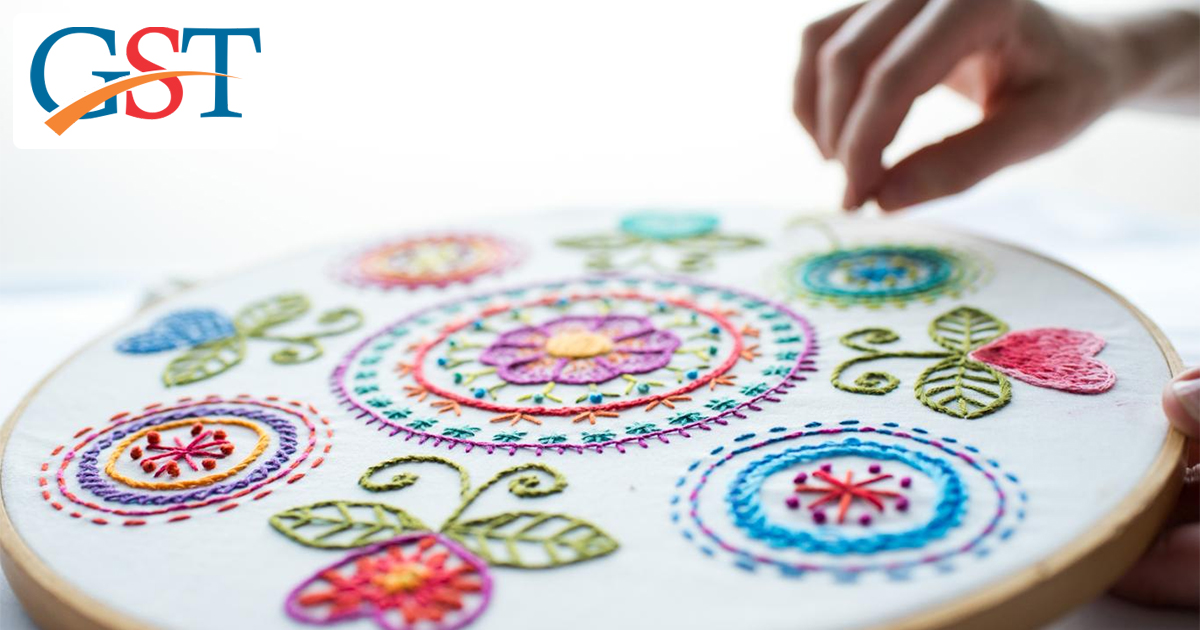The world-renowned embroidery (Chikankari) industry of Lucknow, which employs more than five lakh people, is in a state of confusion because of the indirect tax system goods and services tax (GST) that has implemented across the country. Many people associated with this industry believe that it is going to sink after the GST. People associated with the industry say that the business of the embroidery industry will be badly affected due to GST. We must know that the embroidery industry has already been facing financial issues and most of the workers and businessmen of this sector are from the very poor segment of the society. The small businessmen’s are stating that the situation is very chaotic and their mind is not working on how to avoid GST, as they have already been facing increased cost and extremely low income.
It’s worth mentioning that even in 2003, Jaswant Singh, the finance minister, had proposed to tax the textile industry, but then Prime Minister Atal Bihari Vajpayee rejected it. Vajpayee had then said that the ‘chickenkari’ is a symbol of Awadh’s rich heritage and culture of the soil and should be excluded from the tax system. But today the current Union Finance Minister Arun Jaitley’s thinking is different from that and he has added the embroidery industry to GST. Under GST, any sale of less than Rs 1,000 will be taxed at 5 per cent, while for any sale of more than Rs 1,000, the tax has been fixed at 12 per cent.
Businessmen and craftsmen are unable to recover from this shock of GST and are opening shops by placing bandages in the arm to protest against GST. More than 10,000 business people are involved in the embroidery industry, most of them are located in the Old Chowk area of Lucknow. Over 550,000 skilled and unskilled workers are engaged in carrying out the embroidery. Salim, one of the small businessmen in the square, says, “What should we do now?” Salim told that if this is going to happen in the future, we will have to close our shops. Salim says, “The cost was already getting low and now the GST has worsened the situation even further.”
Read Also: GST Slab Rates in India 2017 Finalized by the GST Council
160,000 families who work in embroidery in more than 70 villages want to remove GST from the embroidery (Chikankari) industry. It is noteworthy that 80% of these workers are women. Munni, who works in the embroidery sector, says that she will request Prime Minister Narendra Modi and Home Minister Rajnath Singh to ‘think again on the order of this death’. Suresh Chabalani, a senior official of this Industry Association, mentioned many practical difficulties and issues due to GST. He said, “In this industry, there are a large number of illiterate workers involved in buying clothes, printing, embroidery, and packing, how can the Modi government expect them to create accounts and keep sales figures? It’s sheer nonsense. ”
Jitendra Rastogi’s family is associated with the work of embroidery for 50 years and he is equally suspicious about GST. If the GST is not removed from the embroidery industry, the world famous chickenkari industry of India can become a history. He says the Chinese machine-made embroidery has already been a challenge for Lucknow’s embroidery. Jitendra says, “It is a well-planned strategy to eliminate handmade embroidery industry.”
